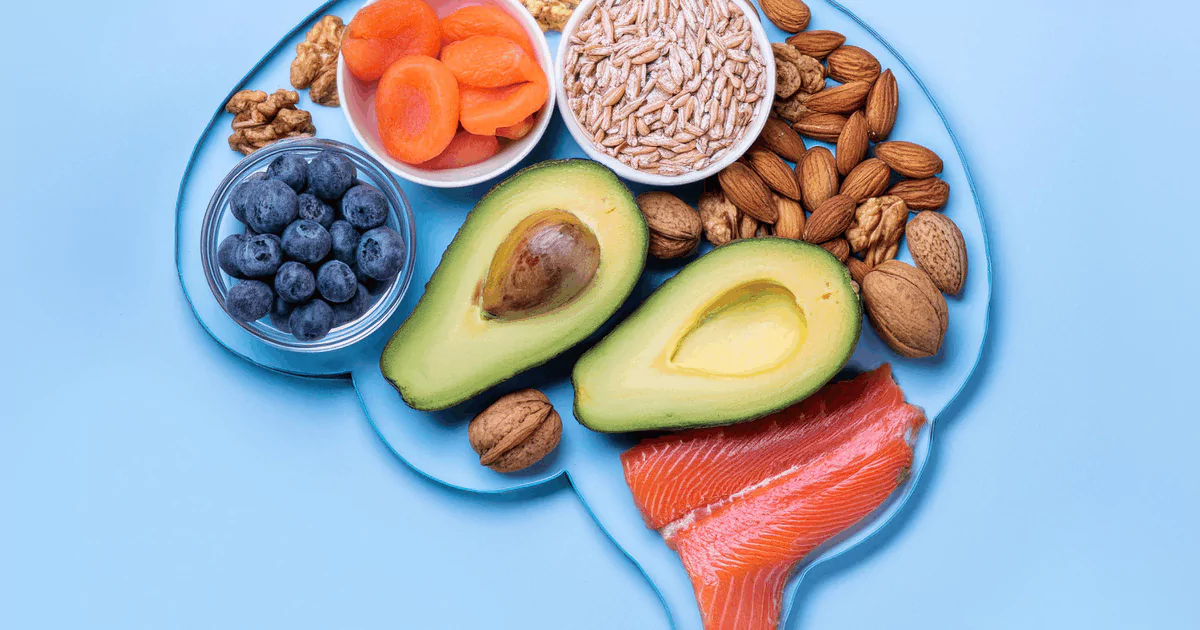The role of nutrition in boosting mental health is incredibly significant, as what we eat affects how we feel. A balanced diet with essential nutrients like vitamins, minerals, and omega-3 fatty acids can support brain function, improve mood, and even reduce symptoms of depression and anxiety. For example, foods rich in antioxidants, such as berries, and omega-3s, like fish, help fight inflammation in the brain, positively impacting mental clarity and emotional stability. The role of nutrition in boosting mental health also includes maintaining balanced blood sugar levels, as fluctuations can cause mood swings and irritability.
Nutrient deficiencies, particularly in B vitamins and iron, are linked to increased fatigue and mental fog, so including leafy greens, nuts, and lean proteins can be beneficial. Furthermore, the role of nutrition in boosting mental health is reinforced by choosing complex carbohydrates, which increase serotonin production, fostering a sense of calm and well-being. Adopting healthy eating habits is an effective, natural way to support mental wellness and resilience over time.

The Role of Nutrition in Boosting Mental Health
Good nutrition isn’t just about maintaining a healthy body; it also plays a significant role in supporting our mental health. The food we eat affects how we feel, think, and manage life’s challenges.
The Mind-Gut Connection
Have you ever felt nervous before a big presentation or anxious in a stressful situation, and your stomach suddenly felt uncomfortable? This reaction happens because our gut and brain are closely connected through a network of nerves and biochemical signals known as the “gut-brain axis.” This network allows both organs to “talk” to each other, impacting our mood and mental health. Scientists call the gut the “second brain” because of this connection.
When we eat nutritious foods, they help keep this gut-brain connection in balance. On the other hand, foods high in sugar, unhealthy fats, or artificial additives can disrupt this balance, sometimes making us feel tired, anxious, or irritable.
Nutrients that Fuel a Healthy Mind
While a balanced diet is essential for overall health, certain nutrients have specific benefits for mental well-being:
- Omega-3 Fatty Acids: Found in foods like salmon, walnuts, and flaxseeds, omega-3s are like brain boosters. They support memory and focus and even help reduce symptoms of depression. Think of them as the fuel that keeps our brain cells working smoothly.
- B Vitamins: Vitamins B6, B12, and folate are vital in producing brain chemicals that regulate mood and energy. Foods like leafy greens, eggs, and beans are rich in these vitamins, supporting a steady, upbeat mood.
- Antioxidants: Fruits and vegetables, especially berries and greens, contain antioxidants that help fight inflammation in the body and brain. Reducing inflammation has been linked to mood disorders, so it can make us feel more balanced and resilient.
- Protein and Amino Acids: Foods rich in protein—like chicken, eggs, and beans—supply amino acids, which are essential for creating brain chemicals that affect mood. For example, the amino acid tryptophan (found in turkey and dairy) helps produce serotonin, known as the “feel-good” chemical. A steady intake of protein-rich foods throughout the day balances these chemicals, giving us more energy and stability.
- Complex Carbohydrates: Whole grains, such as oats, brown rice, and quinoa, provide a steady release of energy. Unlike sugary snacks, complex carbs release glucose slowly, giving our brain a consistent fuel source and helping to prevent mood swings and fatigue.

Why Sugar Is a Double-Edged Sword
The role of nutrition in boosting mental health is essential, especially when managing our energy and mood. While sugary snacks might feel like a quick solution when we’re tired or stressed, they often lead to a sharp spike in blood sugar, followed by an uncomfortable “crash.” This rapid rise and fall can leave us feeling jittery, anxious, and even moody, much like a rollercoaster ride. In contrast, the role of nutrition in boosting mental health is seen clearly when we choose foods that provide a steady energy source.
Fruits like berries, apples, and oranges are naturally sweet but contain fiber, which helps slow down sugar absorption. This prevents those quick highs and lows, giving us a more balanced energy level. The role of nutrition in boosting mental health becomes especially evident when we rely on wholesome, nutrient-rich foods. By making mindful food choices, we can support a more stable mood, avoid the negative effects of sugar crashes, and feel our best throughout the day.
“Good nutrition is a foundation for physical and mental health. Certain nutrients, like omega-3 fatty acids, B vitamins, and minerals, play a crucial role in supporting brain function, influencing mood, and helping to manage symptoms of mental health disorders”
(Sarris, J., Logan, A. C., & Akbaraly, T., 2015, “Nutritional medicine as mainstream in psychiatry,” The Lancet Psychiatry).
How Nutrition Helps Us Handle Stress Better
Imagine your body as a fortress and stress as the occasional storm. Eating well is like building a strong foundation for that fortress, making it less likely to be damaged by the storm. When we face stress, the body uses specific nutrients like magnesium and vitamin C faster, so replenishing these nutrients can help us cope.
Foods high in magnesium—like spinach, almonds, and dark chocolate—calm the nervous system, while vitamin C-rich fruits, like oranges, support our immune system and reduce stress-related fatigue. Drinking water and staying hydrated also play a part here, as dehydration can worsen stress and make it hard to concentrate.
Real-Life Food Choices for a Happier Mind
Making the connection between food and mood doesn’t mean we must overhaul our diets overnight. Simple, small changes are powerful. Here are a few practical tips for integrating mood-boosting foods into our daily lives:

- Start with Breakfast: Breakfast sets the tone for the day, so aim to include protein (like eggs or yogurt), complex carbs (like oats), and a fruit or veggie to keep energy levels steady.
- Snacks That Steady Your Mind: To keep blood sugar levels stable, swap sugary snacks for nuts, seeds, or fruit. Almonds or a banana, for instance, provide nutrients and slow-release energy without the crash.
- Add Fish Twice a Week: Including fish like salmon or tuna in your diet is a great way to boost omega-3 intake. For those who don’t eat fish, walnuts or chia seeds are good alternatives.
- Colorful Plates: The more colorful your meals, the more likely they contain various antioxidants and vitamins. Think of your plate like a painter’s palette—adding different colors ensures a mix of nutrients that benefit the mind and body.
Balancing the Occasional Treat
The role of nutrition in boosting mental health is essential, as it influences how we feel and function daily. A balanced approach to eating doesn’t mean giving up on the foods we love, such as chocolate or desserts. Instead, enjoying these treats occasionally can help us savor them without impacting our mental health. By seeing these foods as rewards rather than regular habits, we can maintain a healthier mindset. For instance, having a small piece of dark chocolate can satisfy a craving while providing antioxidants, which positively affects mood, unlike a sugary snack that can lead to energy crashes.
The role of nutrition in boosting mental health becomes clearer when we consider the effects of different foods. Eating nutrient-rich meals filled with fruits, vegetables, and proteins provides long-lasting energy, promotes brain health, and reduces stress. Likewise, the role of nutrition in boosting mental health is emphasized by choosing a varied diet, helping us feel balanced, energized, and mentally clear throughout the day.
Sleep, Exercise, and Nutrition
The role of nutrition in boosting mental health is often overlooked, yet it’s a key part of maintaining a balanced, happy mind. A nutritious diet of fruits, vegetables, and whole grains can improve brain function, stabilize mood, and provide energy. The role of nutrition in boosting mental health goes beyond just food; it connects directly to other areas of health, like exercise and sleep. When we consume the right foods, we fuel our body and mind, enabling better sleep patterns and more energy to stay active.

Exercise works with a balanced diet, acting as a natural stress reliever, while quality sleep repairs the mind and body. This combination creates a cycle: when we eat well, we sleep better; when we sleep better, we are energized for physical activity. The role of nutrition in boosting mental health, along with regular exercise and good sleep, forms a foundation for a happier, healthier life.
Building a Healthy Relationship with Food
The role of nutrition in boosting mental health goes beyond simply choosing nutritious foods; it’s also about building a positive relationship with what we eat. When we listen to our body’s hunger cues and enjoy meals without guilt, we nurture our body and mind. Being overly restrictive can lead to stress and anxiety, which often counteracts any physical benefits of a diet. Instead, focusing on balanced eating habits creates a sustainable path to wellness.
The role of nutrition in boosting mental health is clear, as nourishing our bodies with wholesome foods supports both physical energy and emotional stability. Additionally, when we remove the pressure to eat “perfectly” and allow ourselves the freedom to enjoy food, we experience less stress around eating. In this way, the role of nutrition in boosting mental health is about creating a relationship with food that fuels not only our body but also nurtures our mental well-being.
Conclusion
The role of nutrition in boosting mental health is crucial because the foods we eat directly affect our brain function and mood. When we choose nutrient-rich foods, we provide our brains with the vitamins and minerals they need to operate effectively. The role of nutrition in boosting mental health also includes staying hydrated, as water is essential for maintaining focus and clarity. Additionally, limiting sugar and processed foods can help prevent mood swings and energy crashes. The role of nutrition in boosting mental health is a simple yet powerful concept: by fueling our bodies properly, we can feel more energetic and balanced. Making these small dietary changes can have a big impact on our overall well-being.

